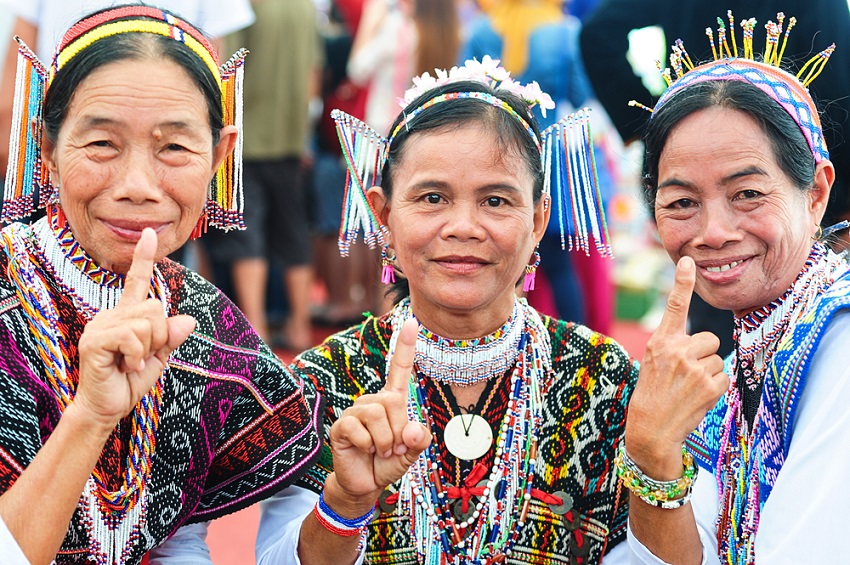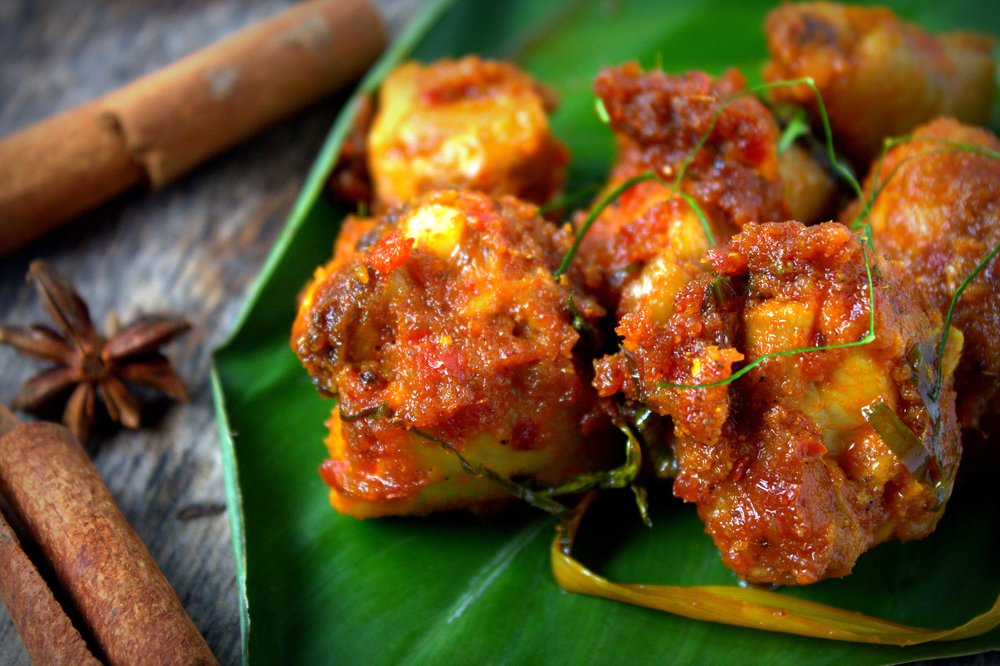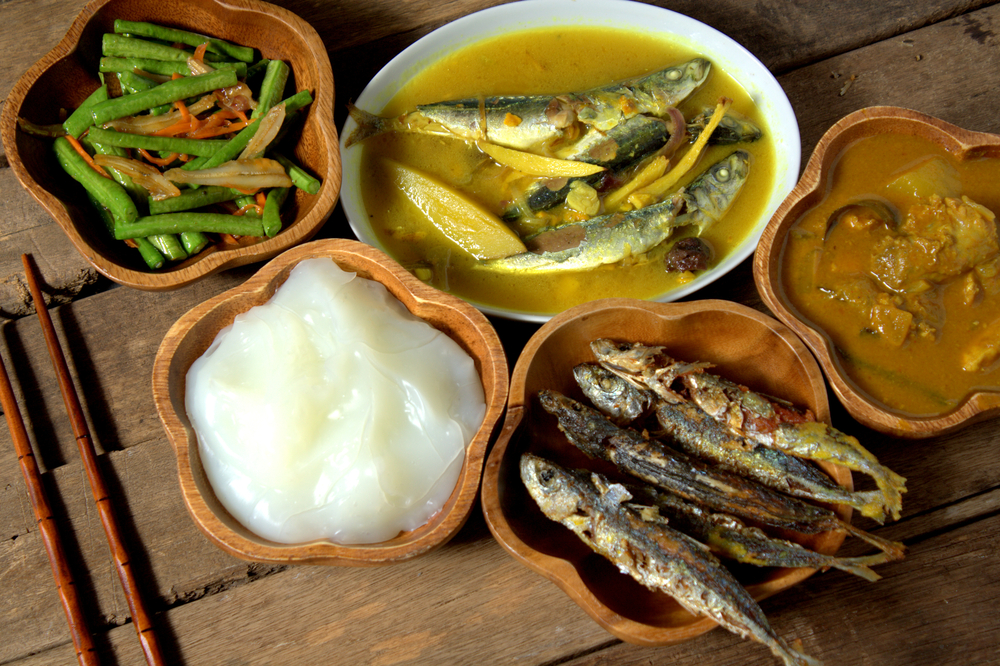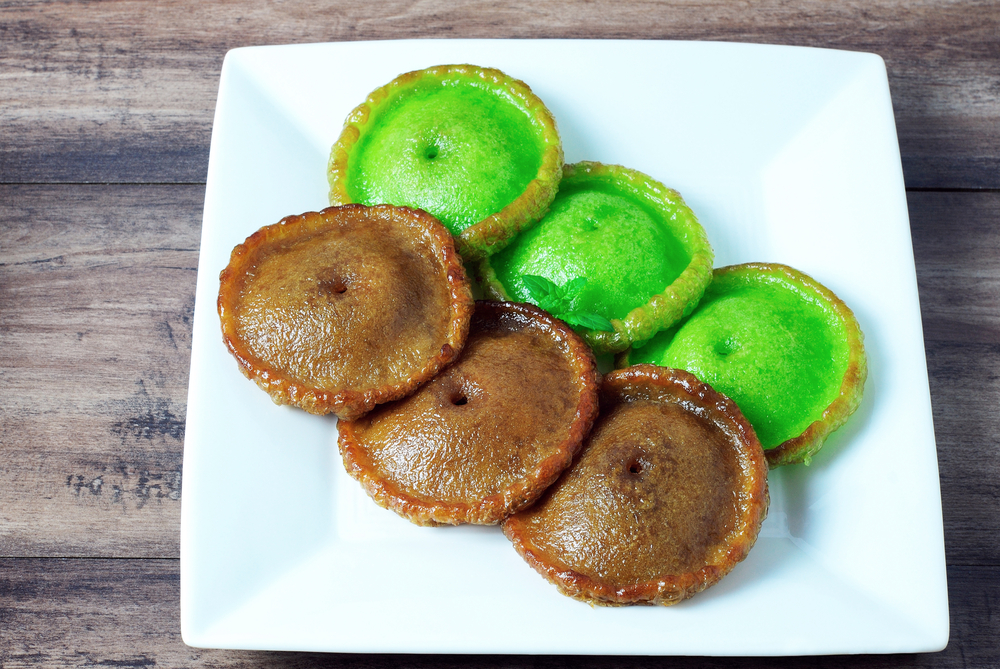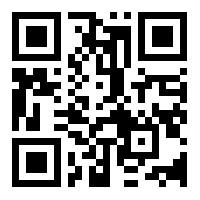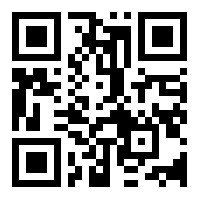Brunei - ethnicity
Brunei, officially Brunei Darussalam, is a small country located on Southeast Asian Peninsula with the area expanding 5,765 square kilometers. From the East to the South, the country is bordered by the state of Sarawak and Malasia, while surrounded by South China Sea on the West to the North. It is one of a few sovereign states in this world that is still ruled by absolute monarchy. Sultan Hassanal Bolkiah is a current head of state. Brunei has 4 districts: Brunei Maura, Belait, Tutong and Temburong.
From a report in 2010, it shows that population of Brunei is approximately 414,400 of which 219,100 are male and 195,300 are female. (ดลมนรรจ์ บากา และ ชัยวัฒน์ มีสันฐาน , 2557:136)In terms of ethnic groups in Brunei, Malays are 273,600 or 67% of the population. Chinese are 45,000 making 15% of the population, and the rest is Iban, Penan, Kedayan, Tutong, Belait, Dusun, Murut and Bisaya approximating 95,4000. (สถาบันเอเชียศึกษา จุฬาลงกรณ์มหาวิทยาลัย, 2558:136) Each of the ethnic groups has different ways of life.
Malay
Malay, the dominant group, is living in many countries across Southeast Asia. They make up the most population in Brunei and are living in Indonesia, Malaysia and Philippines. In Vietnam and Cambodia, they are called Cham.
Since Malay is the most population, Malay is the official language of Brunei. Even the Sultan Hassanal Bolkiah, the head of state, is also Malay. He has a strong faith in Islam. It is known that Bruneian Malay people are Islamic, and are called ‘Malay Muslim’. Their ways of life conform to Islamic doctrines such as government administration, the rule of Shariah law and education. Regarding career path, Malay Muslims prefer serving as soldiers or bureaucracy in which they hold higher ranks in both governmental and private sectors.
Chinese
Chinese is an ethnic group largely found living across the world including Brunei. History indicates that Chinese had long contacted this land over a thousand years ago. The very first visit they paid was probably in 1375 when Ming dynasty ruled China. Ong Sun Ping, a high-ranking official in Ming court, traveled to Brunei for trading purposes. He later married a daughter of Sultan Muhammad Shah (Lee Khoon Choy, 2013, pp.530). It was a political marriage forming a stronger relation between two states until 20th century when the number of Chinese started immigrating to Brunei. At that time, Brunei was one of British colonies. Chinese labors especially from Fujian flooding the land as discovering oil resources in 1929 required a large amount of labor to support oil industry. During the 1960’s, the number declined to 26% and now at 15%. Some of the Chinese are variedly Islamic, Christian, Buddhist, Taoist and Confucianist. Their industries are among these fields: construction, running business, trading, hotel business, transportation, mining and running factories (ดลมนรรจ์ บากา และ ชัยวัฒน์ มีสันฐาน, 2557:138)
However, a serious issue the Chinese in Brunei are facing now is nationality-less. Although some families have been living there for generations, they cannot obtain Bruneian nationality. This contributes to greater effects. They do not have permission to work or own any piece of land. Therefore, Brunei decided to issue ‘red IC holder’ cards for permanent residents. (David Deterding and Salbrina Sharbawi, 2013, pp.5) Given the card to the Chinese convert to Islam, it would be easier for them to apply for Permanent Resident. (MINORITIES IN BRUNEI, 2013)
Other Ethnicities
Other ethnicities in Brunei are Dusun,Iban, Murut, Kedayan, Tutong and Penan. Among these 6 groups, Dusun makes up the most population by 6.3% followed by Iban at 4.7%. Some groups still hold strong beliefs of their own while some have converted to Islam or Christian. Some have their own languages. Kedayan, for example, living in Brunei, Sabah, Sarawak and Labuan use Kedayan to communicate. Most of them are agriculturists, farmers and fishermen. (MINORITIES IN BRUNEI, 2013)
All the ethnic groups share the same problem with the Chinese – nationality-less. They do not have jobs, education and health care since they are not Bruneian citizen. It is even worse when they cannot apply for Permanent Resident as the Chinese do. It might be considered a consequence of a root cause in which the ethnic groups do not apply for a birth registration. So, it gives birth to a nationality-less issue that has other effects on their basic rights granted by the state. (BRUNEI 2013 HUMAN RIGHTS REPORT, 2013)
Conclusion
It is well-known that Brunei Darussalam means ‘the Abode of Peace’ filled with oil and gas resources raising Brunei to one of the most prosperous countries in this world. Brunei is the second highest GDP per capita in Southeast Asian countries and 26th highest in the world. Brunei is also the fourth biggest oil producer in this region and the fourth biggest natural gas producer in the world. It enables Bruneian government to provide welfare state at its best. Brunei is economically prosperous but still struggle with unemployment. However, it might not be an issue for the country. According to information in 2014, it appeared there were 44,274 vacancies while 12,275 were unemployed. The government took it very seriously and urged the entrepreneurs including companies to hire more local labors. They also asked the labor to be more open to any kind of jobs (สถาบันเอเชียศึกษา จุฬาลงกรณ์มหาวิทยาลัย, 2558:143) as it is a tradition for Bruneian especially Malay to serve bureaucracy or become soldiers. Meanwhile, the Chinese prefer getting involved with construction, business, trading, hotel, transportation, mining and running factories. (ดลมนรรจ์ บากา และ ชัยวัฒน์ มีสันฐาน, 2557:138)
Malay is the predominantly ethnic group in Brunei whose rights are granted access to welfare state. However, the Chinese and other ethnic groups like Iban, Penan, Kedayan, Tutong, Belait, Dusun, Murut and Bisaya are still facing the problem of nationality-less. Moreover, the government is trying to put a lot of pressure on how they should abandon their faith in superstitious or Christianity with a wish they would conform to Islam. (World Directory of Minorities and Indigenous Peoples, 2016)
Even though Brunei is widely known as ‘the Abode of Peace in this region, it is noticeable the people never challenge the establishments.That may be becase Bruneian form of government and Shariah Law promise brutal punishments for those commit wrongdoings. The rights of other ethnic groups besides Malay Muslim are an ongoing issue the government should be aware of.
Bibliography
ดลมนรรจ์ บากา และ ชัยวัฒน์ มีสันฐาน . (2557). ประวัติศาสตร์บรูไน. กรุงเทพมหานคร: มูลนิธิโครงการตำราสังคมศาสตร์และมนุษยศาสตร์.
สถาบันเอเชียศึกษา จุฬาลงกรณ์มหาวิทยาลัย. (2558). รายงานฉบับสมบูรณ์(Final Report) การศึกษาข้อมูลพื้นฐานเพื่อจัดทำแนวทางการดำเนินงานความรับผิดชอบต่อสังคม (CSR)ในประเทศอาเซียนที่กลุ่ม ปตท.ดำเนินธุรกิจ (กัมพูชา สปป.ลาว บรูไน มาเลเซีย ฟิลิปปินส์ และสิงคโปร์). กรุงเทพมหานคร: สถาบันเอเชียศึกษา จุฬาลงกรณ์มหาวิทยาลัย.
David Deterding and Salbrina Sharbawi. (2013). Brunei English A New Variety in a Multilingual Society . Hongkong.
Lee Khoon Choy. (2013). GOLDEN DRAGON AND PURPLE PHOENIX The Chinese and Their Multi-Ethnic Descendants in Southeast Asia. Singapore: World Scientific Publishing Co.Pte.Ltd.
BRUNEI 2013 HUMAN RIGHTS REPORT. (2013). เรียกใช้เมื่อ 07 July 2016 จาก http://www.state.gov/documents/organization/220391.pdf
MINORITIES IN BRUNEI. (2013). เรียกใช้เมื่อ 07 July 2016 จาก http://factsanddetails.com/southeast-asia/Brunei/sub5_10b/entry-3610.html
World Directory of Minorities and Indigenous Peoples. (2016). Brunei Darussalam - Dusun,Murut, Kedayan, Iban, Tutong, Penan. เรียกใช้เมื่อ 15 June 2016 จาก World Directory of Minorities and Indigenous Peoples: http://minorityrights.org/minorities/dusun-murut-kedayan-iban-tutong-penan/
